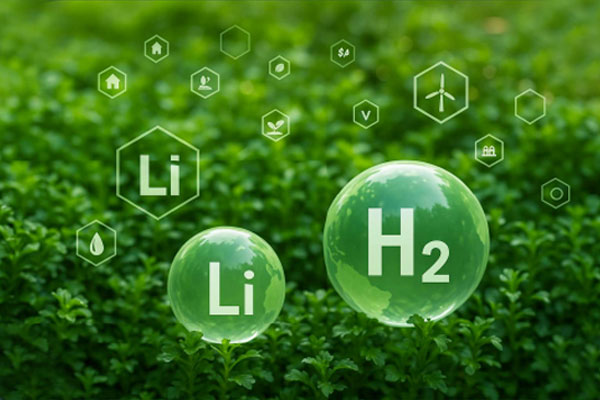
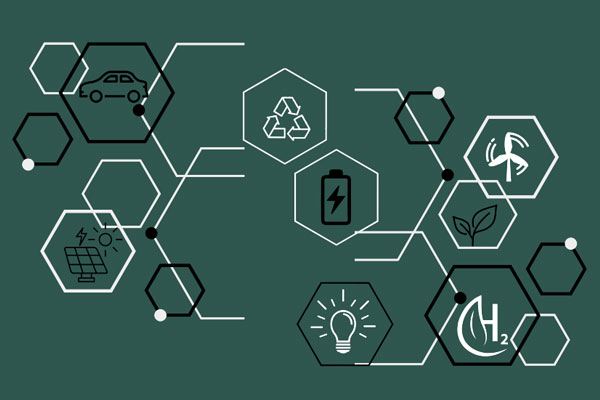
Lithium has become a key element for the energy transition, especially due to its role in lithium-ion batteries used in electric mobility, portable electronics and energy storage. Its global demand is rising rapidly, requiring a sustainable supply chain capable of addressing technological and environmental challenges.
This article reviews the main lithium sources, the environmental impacts of its extraction, and current separation and recovery methods (such as solvent extraction, adsorption, ion exchange and membranes). It also analyses recent advances, limitations of these technologies, and the strategic role of battery recycling and industrial waste. Finally, it identifies existing gaps to strengthen the lithium supply chain in support of the energy transition.

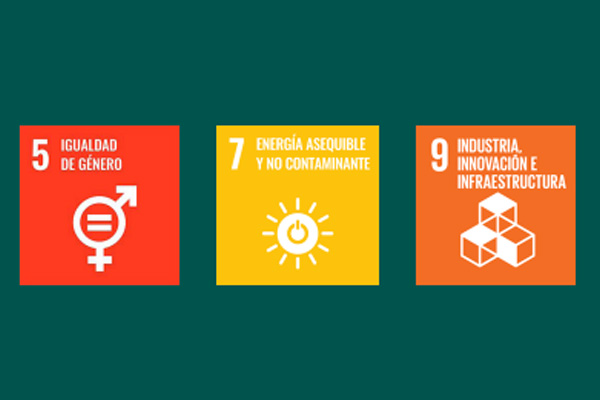
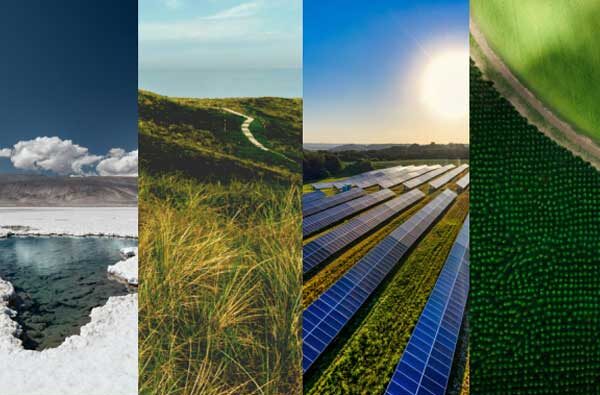

This document summarizes key debates, conclusions and recommendations from the report “Scientific Cooperation between Europe and Latin America and the Caribbean: towards a just and environmentally sustainable energy transition.” Both reports are based on the Virtual Thematic Event “The social impact of the energy transition” (17–18 October 2024) and the Virtual Thematic Event “Towards environmental sustainability in the energy transition” (8–9 October 2025) within the ENERGYTRAN project.
The events brought together experts from Latin America, the Caribbean and the EU—including researchers, policymakers, civil society and the private sector—to exchange knowledge and good practices on environmental, sociocultural and political dimensions of the energy transition. Discussions emphasised the need for a just, inclusive and environmentally sustainable transition, including citizen participation, the role of public institutions and adequate regulatory frameworks.
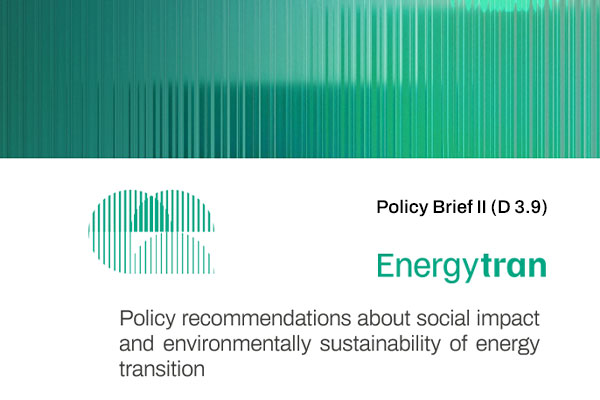


Monitoring the Sustainable Development Goals (SDGs) is essential to assess progress toward a more sustainable and equitable future. SDGs 7, 12 and 13—affordable clean energy, responsible consumption and production, and climate action—are central to the energy transition.
To measure this, the Energytran project developed an analytical tool that evaluates progress in the EU and LAC through two composite indicators: the Renewable Energy Adoption Index and the Energy Transition Sustainability Index. Both are implemented as automated workflows in the LifeWatch ERIC virtual research environment, ensuring transparent, reproducible and FAIR analysis.
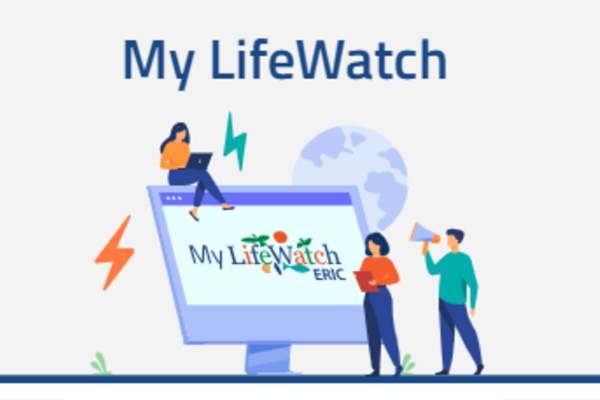
The digital platform Energytran Network4Collaboration was created to foster cooperation and knowledge exchange between Europe and Latin America and the Caribbean in the field of energy transition.
The dataset includes registered users, access frequency, published news, collaboration opportunities, events and geographical distribution. Collected in December 2025, data exclude personal or sensitive information.
The platform offers multilingual navigation, user profiles, networks, events and resources that facilitate interdisciplinary collaboration.
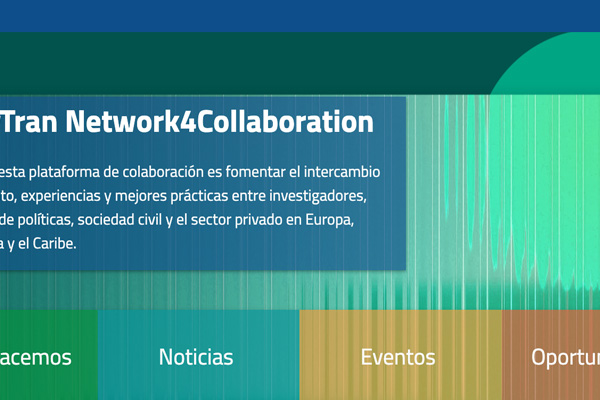
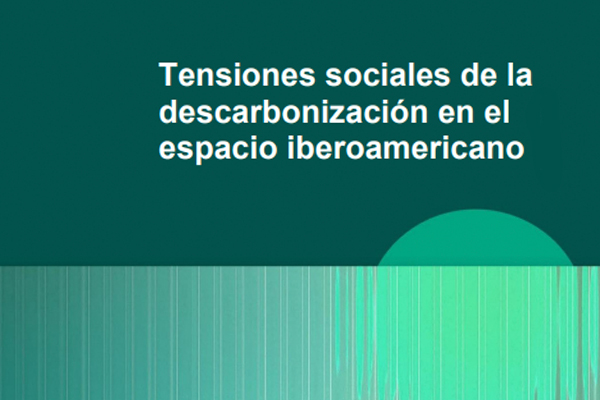



Research infrastructure cooperation for energy transition between European and Latin American and the Caribbean countries

Funded by the European Union. Views and opinions expressed are however those of the author(s) only and do not necessarily reflect those of the European Union. Neither the European Union nor the granting authority can be held responsible for them.
EULAC ENERGYTRAN © 2026 · All rigths reserved
EULAC ENERGYTRAN © 2026
All rigths reserved

Research infrastructure cooperation for energy
transition between European and Latin American
and the Caribbean countries
EULAC ENERGYTRAN © 2026
All rights reserved
To provide the best experiences, we use technologies like cookies to store and/or access device information.